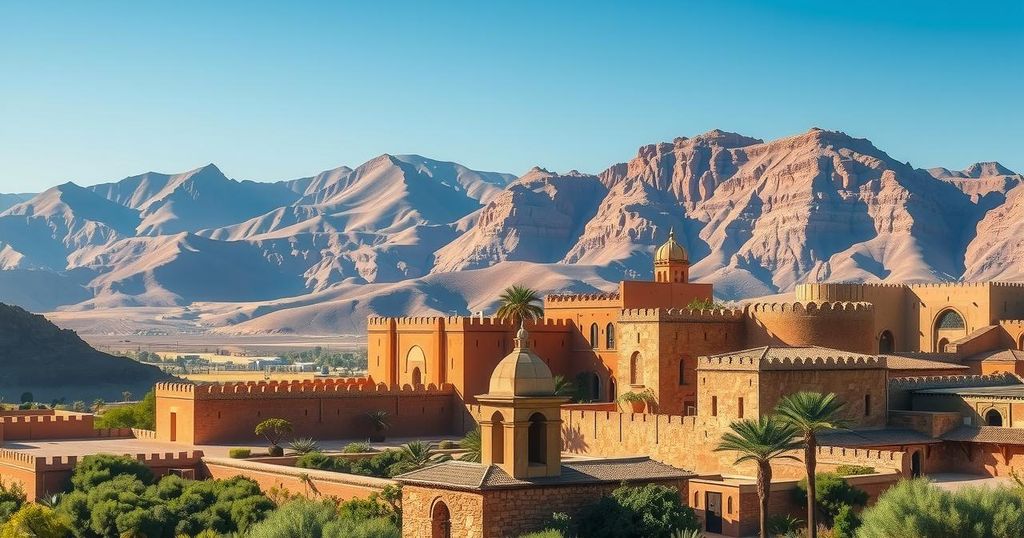IMF Completes 2025 Article IV Review, Approves Funding for Morocco’s Resilience
The IMF has completed the 2025 Article IV Consultation with Morocco, approving SDR 375 million disbursement under the RSF arrangement. Despite drought conditions, the Moroccan economy shows resilience, with GDP growth projected at 3.2 percent for 2024, expected to rise to 3.7 percent in subsequent years. Structural reforms and fiscal strategies are pivotal for job creation and economic stability.
The International Monetary Fund (IMF) Executive Board concluded the 2025 Article IV Consultation with Morocco and approved the Third Review under the Resilience and Sustainability Facility (RSF), facilitating an immediate disbursement of SDR 375 million (approximately US$ 496 million). Despite another challenging year marked by drought, Morocco’s economy demonstrated notable resilience, with real GDP growth projected to slow modestly to 3.2 percent in 2024.
Morocco’s economic outlook remains optimistic, anticipating a growth acceleration to about 3.7 percent in the coming years, propelled by increased investment and ongoing structural reforms. Part of the revenue gained from new tax reforms is recommended to be saved to fortify fiscal buffers against future economic shocks. This strategy, along with initiatives to enhance job creation and market competition, aims to address elevated unemployment, particularly in the agricultural sector.
Economic activity in Morocco is forecasted to decelerate slightly due to prolonged drought but remains supported by strong domestic demand. Although there was a widening of the current account deficit and unemployment rates hover around 13 percent, the fiscal deficit for 2024 improved, closing at 4.1 percent of GDP. This positive trend can be attributed to higher-than-expected tax revenues, which outpaced increased public expenditure.
Inflation has moderated as the influences of previous supply shocks diminished, prompting the Bank Al-Maghrib to reduce the policy rate twice in 2024. The Moroccan dirham remains stable within its established fluctuation band. Ongoing structural reforms are expected to foster long-term resilience against fiscal and climate-related challenges, further enhancing economic stability.
Under the RSF arrangement, Morocco has made substantial progress in addressing climate resilience, with initiatives aimed at protecting water resources and reforming the electricity market to stimulate renewable energy production. Mr. Kenji Okamura, the IMF Deputy Managing Director and Acting Chair, praised Morocco’s economic policies, which have allowed the nation to navigate several negative shocks effectively. He highlighted the importance of forthcoming infrastructure projects and comprehensive reforms to bolster economic growth and inclusivity.
The IMF’s conclusion of the 2025 Article IV Consultation and the approval of the RSF arrangement demonstrates Morocco’s economic resiliency despite challenges such as drought. The projected modest GDP growth and strategies for fiscal strengthening highlight Morocco’s commitment to structural reforms. Continued efforts in climate resilience and fiscal management underpin the nation’s economic future, fostering growth that is not only robust but also inclusive and sustainable.
Original Source: www.miragenews.com




Post Comment